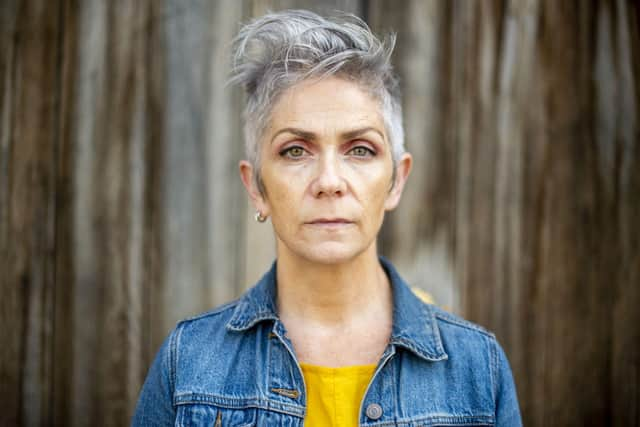Edinburgh Book Festival reviews: Raynor Winn | Claire Askew | Kate Foster | Denise Mina
Few of us lead lives that would make great feature films, but Raynor Winn’s would. Indeed, the story she wrote about in The Salt Path about how, after being made homeless the same week her husband Moth was diagnosed with an incurable illness, they both set off to walk the 630-mile South-West Coastal Path round Cornwall and Devon, is filming there right now.
If I were her, I’d be rather full of the fact that I was going to be played by Gillian Anderson and Jason Isaacs was going to be my husband, but Winn is altogether more modest and didn’t even mention it. In her book – she’s now on her third – love and hope quite demonstrably outweigh ego.
The love bit is obvious – she has felt that Moth was “The One” ever since she first saw him in a college canteen aged 18. But hope flies in the face of what little we know about Corticobasal degeneration (CBD), a form of dementia which affects balance and memory, with which he was diagnosed ten years ago and which, the medics agree, should have killed him by now.
Walking isn’t a cure for Moth, she explained, but it keeps his illness at bay – or at least, when it’s not a routine hike but part of an adventure such as the 1,000-mile trek across Britain she writes about in Landlines. At its start, near Cape Wrath, he could hardly do two miles. The two of them were sitting down, looking at the sea, when a couple of climbers asked where they were heading. They said they had intended to walk the Cape Wrath Trail; but were beginning to wonder whether they’d left it too late in life. “You’ve got to put yourself in the way of hope,” one of the climbers said. “Do that and anything can happen.”
What kickstarted The Dead Don’t Speak, the fifth in Claire Askew’s (excellent) DI Helen Birch series, wasn’t hope but spite: its opening scene was prompted by memories of being chased by a boy racer through Edinburgh’s Old Town.
“I didn’t do anything about it at the time,” she said, “but I realised that I, as a crime writer, could get vengeance.” Enter a vigilante murderer, who takes over half the novel’s narration. And though she’s always been wary about writing about violence, “I was disturbed to find out how much fun it was to write from his point of view”.
The Old Town was also the setting for Kate Foster’s debut novel The Maiden, set in 1679, which tells the story of a Corstorphine murder (and subsequent execution and haunting) which she first wrote about as an eight-year-old growing up there and which clearly still intrigues. It has been listed for both the McIlvanney Prize for Scottish Novel of the Year and for the Bloody Scotland debut prize; the winners will be announced on 15 September.


You’d be hard-pressed, though, to find any event linking past and present as closely, or as enjoyably, as the one in which Denise Mina talked about 15th century friar Girolamo Savonarola, subject of her novella Three Fires. You might think his brief puritanical dictatorship in 1490s Florence has nothing to do with the 21st century. Not so.
“This was the first populist uprising in modern times,” Mina pointed out, adding that it’s hardly as though the antisemitism, homophobia and misogyny that fuelled it have vanished either. Conspiracy theories, Donald Trump, Brexit, culture wars – all start here, she claimed, which is as good an elevator pitch for the book as I can imagine, and a premise with which event chair Christopher Brookmyre clearly agreed. You mightn’t think that there’d be as many laughs – or as much common sense – in an event with this subject, but it abounded in both.
“I wanted it to feel like snapshots of particular moments,” Mina said of her book, “as if it had been told to you in a pub.” That’s exactly what this conversation sounded like too. Two friends in a pub, chatting and laughing, and yet talking about interesting stuff. The ideal Book Festival format, surely?